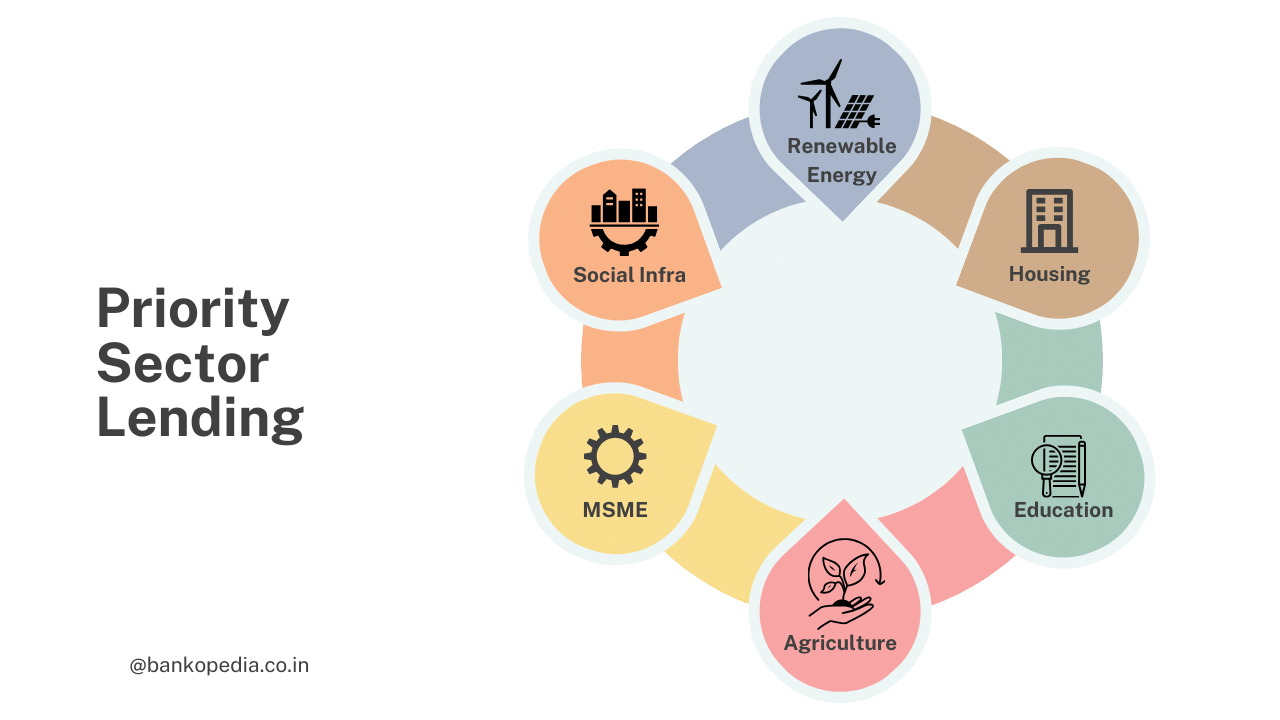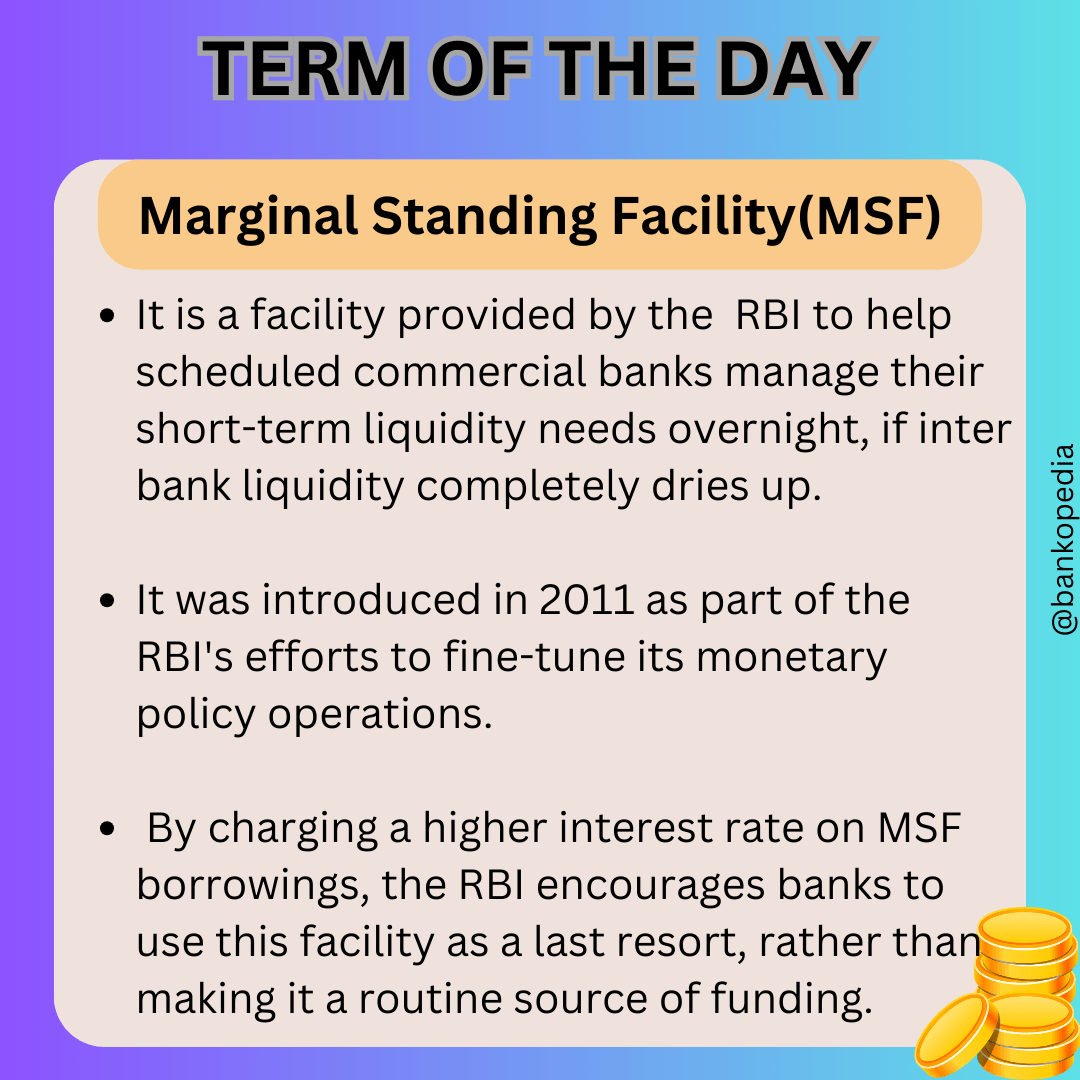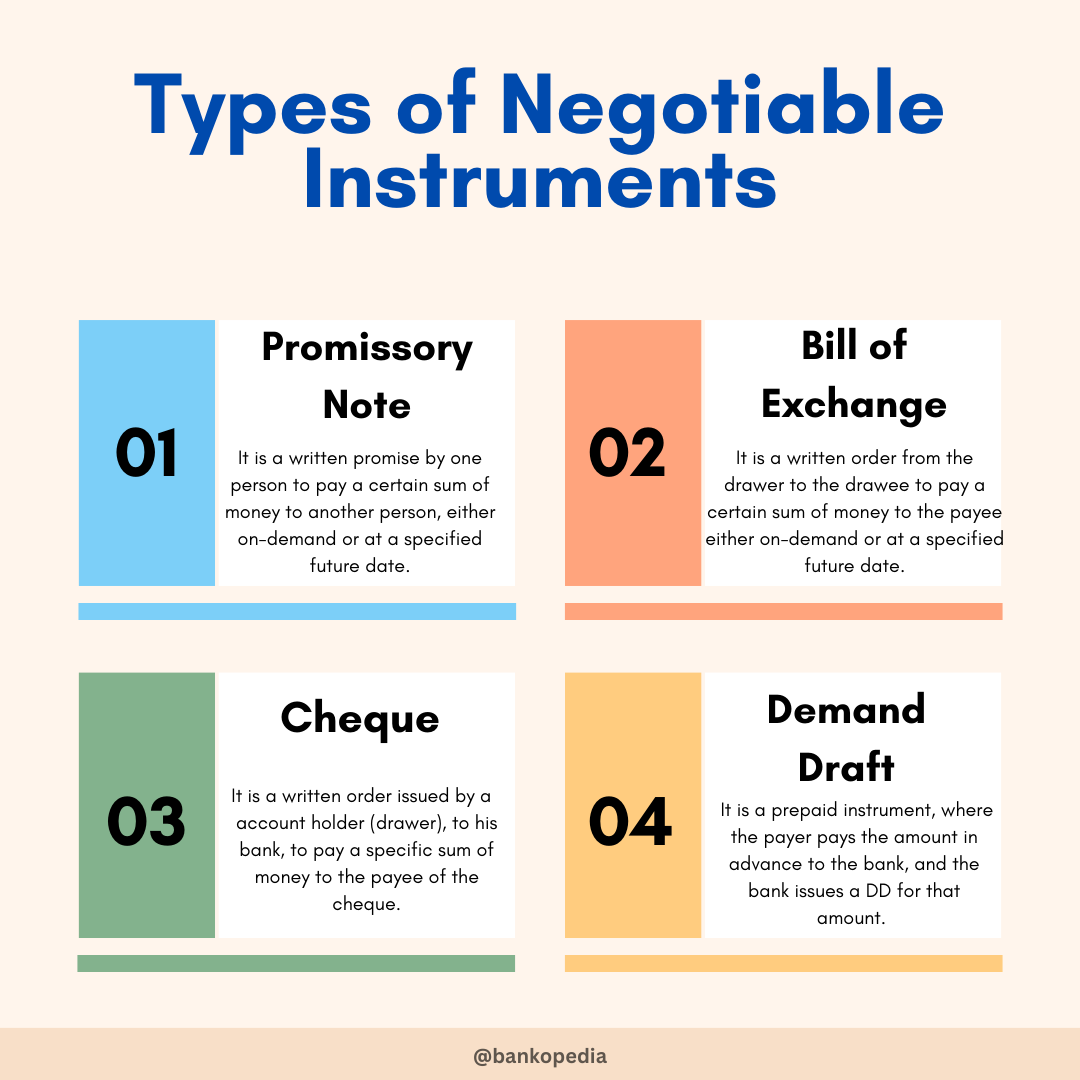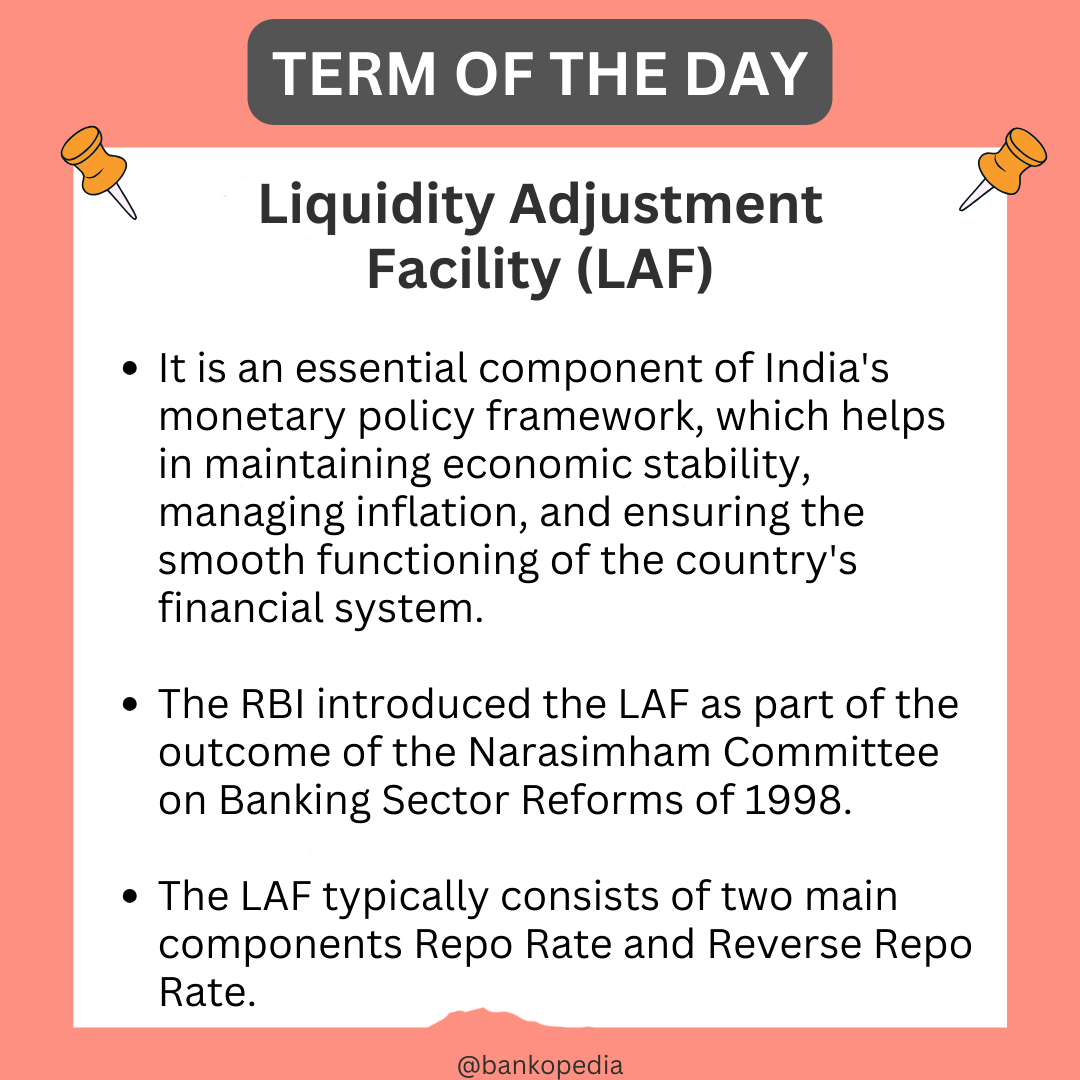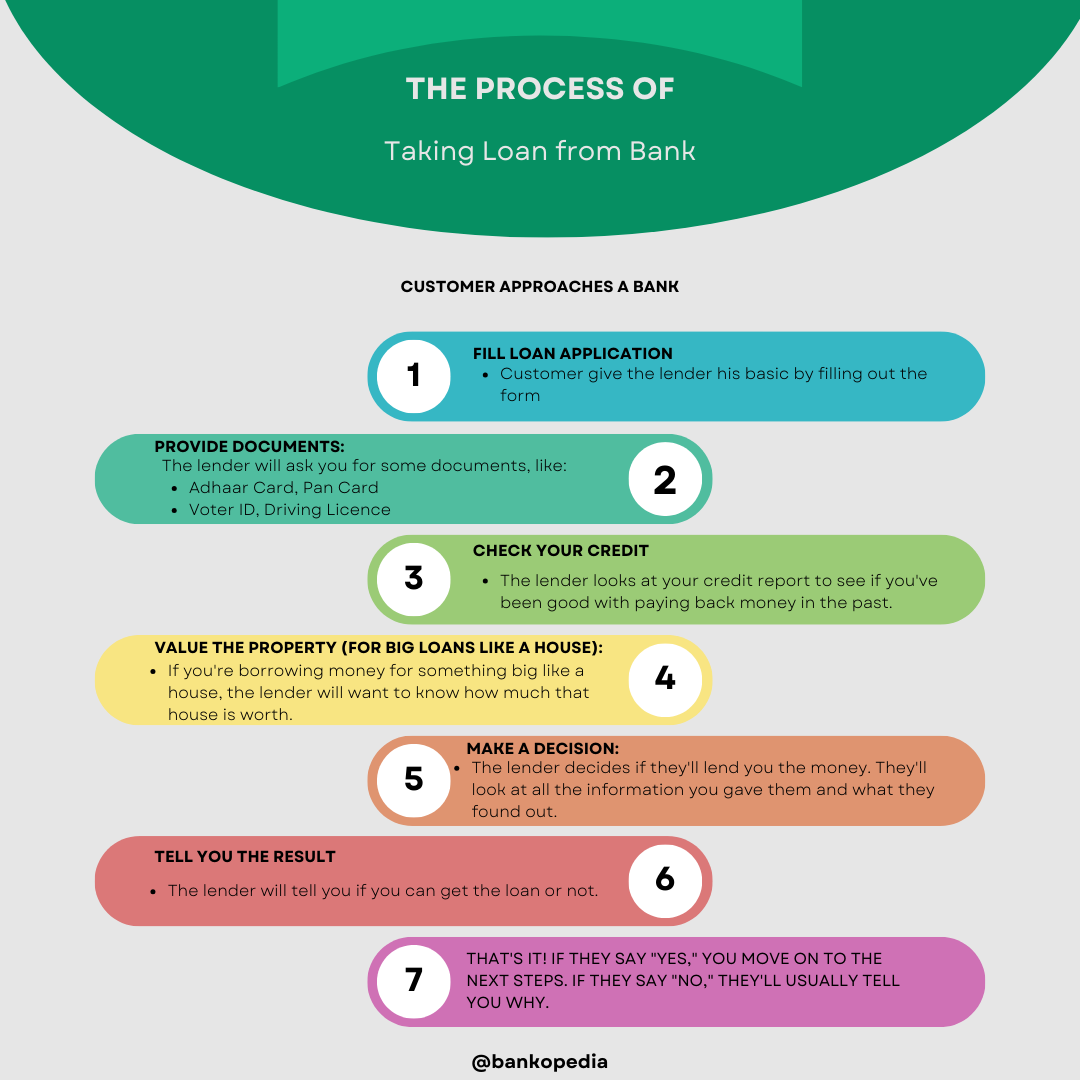Welcome to Daily Banking Digest, your premier source for the latest news and insights on March 11/12, 2024, focusing on banking, the economy, and finance. Our platform offers a comprehensive overview of the day’s most critical financial stories, market trends, and economic developments. Whether you’re a professional in the financial sector, an investor monitoring market movement, or someone interested in staying informed about the economic landscape, Daily Banking Digest provides reliable, up-to-date information.
Join our Telegram Channel for Daily PDF in your Inbox – Click Here
Table of Contents
Not paid tax according to specific financial transaction, do so by March 15, says IT Department
The Income Tax Department has identified a mismatch between financial transactions and tax payments for some individuals and entities. Taxpayers are advised to calculate their tax liability accurately and pay any outstanding balance as advance tax before March 15th. The department is conducting an e-campaign to inform taxpayers of significant financial transactions and encourage compliance.
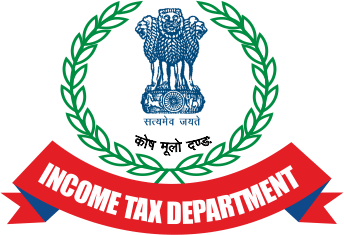
Key Points:
1. Mismatch between Financial Transactions and Tax Payments: – The Income Tax Department has identified individuals and entities with financial transactions that do not align with their tax payments.
2. E-Campaign for Taxpayer Service: – The department is conducting an e-campaign to notify taxpayers of significant financial transactions and urge them to calculate and pay advance tax accordingly.
3. Specified Financial Transactions: – Rule 114E lists 13 types of specified financial transactions that are reported to the Income Tax Department.
4. Annual Information Statement (AIS): – Details of significant financial transactions are available to taxpayers in the AIS module.
5. Compliance Portal: – Taxpayers can access the Compliance Portal through their e-filing account to view significant transactions.
6. Improved Direct Tax Collection: – Direct tax collection has increased significantly during the current fiscal year, driven by improved compliance and growth in Personal Income Tax.
7. Revised Direct Tax Collection Estimate: – The Union Budget has raised the estimate for direct tax collection to ₹19.45 lakh crore.
8. Net Direct Tax Collection: – As of February 10th, net direct tax collection stood at ₹15.60 lakh crore, exceeding 80% of the revised estimate.
9. Growth in Corporate and Personal Income Tax: – Net Corporate Income Tax collection grew by over 13.5%, while Personal Income Tax collection surged by over 27%.
10. Refund Issuance: – The department has issued refunds amounting to ₹2.77 lakh crore during the current fiscal year.
RBI cracking down on P2P credit card transactions
The Reserve Bank of India (RBI) is reportedly cracking down on peer-to-peer (P2P) credit card payments made through third-party service providers. This follows the RBI’s discovery of retail customers using credit cards to pay rent and tuition fees through these apps. The RBI considers such transactions to be a violation of regulations and will not allow them.
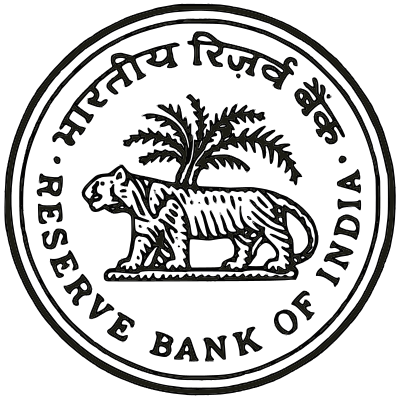
Key Points:
Definition of Credit Card:
- A credit card is a payment instrument with a pre-approved revolving credit limit used for purchasing goods and services or cash advances.
Regulatory Norms:
- Credit card transactions are intended for use between merchants and customers (P2M).
- Funds routed through third-party escrow accounts bypass regulations and are not permitted.
Third-Party Service Providers:
- Fintechs like CRED, OneCard, and NoBroker offer P2P credit card payment services.
- These entities charge commissions of 1.5-3% on such transactions.
Licensing Issues:
- Such transactions violate the credit card framework and exceed the licensing scope of third-party entities.
- CRED has a TPAP license from NPCI and has applied for a PA license from RBI, while OneCard is a co-branded card issuer.
RBI’s Previous Action:
- Last month, the RBI barred Visa from offering its BPSP facility for commercial payments to non-card accepting recipients.
India-EFTA pact: India to phase out import duties on chocolates, watches, textiles, smartphones.
India and the European Free Trade Association (EFTA) have signed a trade agreement that will gradually eliminate import duties on a wide range of goods, including chocolates, watches, smartphones, machinery, and medicines. The agreement aims to boost trade and economic cooperation between the two parties.

Key Points:
Import Duty Elimination:
- Duties on 82.7% of India’s tariff lines, covering 95.3% of EFTA exports, will be phased out.
- Gold imports will remain unaffected.
- Sectors such as dairy, soya, coal, and sensitive agricultural products are excluded.
Immediate Zero Tariffs:
- Coal (except steam and coking coal), medicines, textiles, apparels, and iron and steel products will have zero tariffs upon the agreement’s entry into force.
Phased Tariff Elimination:
- Tariffs on cod liver oil and fish body oil will be eliminated in five years.
- Tariffs on tuna, trout, salmon, olive oil, cocoa, corn flakes, instant tea, roasted chicory, machinery, bicycle parts, clocks, and watches will be eliminated in seven years.
- Tariffs on smartphones, chocolates, medical equipment, coffee, avocado, apricot, and olives will be eliminated in ten years.
Exclusive Concessions for Switzerland:
- Duty cuts on wines from Switzerland will be similar to those granted to Australia under the Australia-India Economic Cooperation and Trade Agreement.
- Duty cuts on sugar and cut and polished diamonds will be phased in over ten and five years, respectively.
Impact on India’s Exports:
- 98% of India’s exports to Switzerland, primarily industrial products, will enter duty-free.
- However, this does not create new market opportunities as these products already enjoyed duty-free access under Most Favoured Nation (MFN) status.
- 2% of India’s exports to Switzerland, agricultural products, are excluded from concessions due to Switzerland’s protectionist measures.
SC puts SBI on notice, sets 24-hour deadline to give poll bond info.
The Supreme Court has dismissed the State Bank of India’s (SBI) request for an extension to provide details of electoral bonds purchased anonymously and their encashment by political parties. The Court has ordered SBI to submit the details by March 12, 2024, and instructed the Election Commission of India to publish them on its website by March 15, 2024.

Key Points:
1. SBI’s Request for Extension Dismissed: – SBI’s application for an extension until June 30, 2024, was dismissed by the Supreme Court. – The Court found that the information sought was readily available with SBI.
2. Details to be Submitted by March 12: – SBI is required to submit details of electoral bonds purchased and encashed by political parties by the close of business hours on March 12, 2024.
3. Election Commission to Publish Details: – The Election Commission of India has been instructed to publish the details on its website by 5 pm on March 15, 2024.
4. Contempt Petitions Filed: – Two non-government organizations filed contempt petitions against SBI for “wilful disobedience” of the Court’s orders.
5. SBI’s Explanation: – SBI argued that matching the bonds purchased with the names of donors and the parties that redeemed them was a complex and time-consuming exercise.
6. Court’s Response: – The Court clarified that it had not asked SBI to match the information but only to disclose the details available with it.
7. SBI’s Lack of Candor: – The Court criticized SBI for not providing information on its actions since the February 15 judgment.
8. Affidavit Not Sworn by Senior Officials: – The SBI affidavit supporting the application was not sworn by the Chairman or Managing Director but by an Assistant General Manager.
Jio Payments to disrupt market with entry into soundbox segment.
Jio Payments is entering the soundbox segment, a device used for payments and audio verification. After successful pilot launches, Jio plans to expand its soundbox offering to retail stores beyond its own franchises. The move comes as Paytm, the industry leader in soundboxes, faces challenges. Experts view soundboxes as a lucrative revenue stream for fintechs and valuable for merchants, providing insights into their behavior.

Key Points:
1. Jio’s Entry into Soundbox Segment: – Jio Payments is entering the soundbox segment, targeting retail merchants. – The launch follows successful pilot projects in Reliance Retail stores.
2. Market Dynamics: – Paytm is the industry leader in soundboxes, followed by PhonePe. – Over 20 million Indian merchants use soundboxes.
3. Soundbox Revenue Model: – Soundboxes generate revenue through a fixed monthly rental fee. – They also serve as POS devices for QR code transactions.
4. Merchant Benefits: – Soundboxes provide auditory alerts and insights into merchant behaviors. – This data can facilitate loan offerings to merchants.
5. Jio’s Pricing Strategy: – Jio’s soundbox pricing is yet to be announced. – Experts believe that competitive pricing could shake up the market.
AS Rajeev sworn in as Vigilance Commissioner
AS Rajeev, a seasoned banker with over 38 years of experience, has been appointed as the Vigilance Commissioner at the Central Vigilance Commission. During his tenure as MD & CEO of Bank of Maharashtra, he successfully led the bank out of the RBI’s Prompt Corrective Action and transformed it into a robust midsized bank with exceptional asset quality.
Key Points:
Appointment: – AS Rajeev sworn in as Vigilance Commissioner at the Central Vigilance Commission.
Banking Experience: – Career banker with over 38 years of experience in Syndicate Bank, Indian Bank, Vijaya Bank, and Bank of Maharashtra.
Bank of Maharashtra Success: – Led Bank of Maharashtra out of RBI’s Prompt Corrective Action. – Transformed the bank into a top-performing PSB with strong business and profitability parameters.
Other Roles: – Nominee Director in EXIM Bank, New India Assurance Co Ltd, and NPCI. – Vice Chairman of the Indian Banks Association. – Member of RBI’s Core Group for implementing Indian Accounting Standards.
Tenure: – Tenure of Vigilance Commissioner is four years or until the age of 65.
Complaints received by the RBI Ombudsman and CRPC saw a 68.24% jump in FY23
The number of complaints received by the RBI Ombudsman Scheme surged by 68.24% to 7,03,544 in FY23, with mobile/electronic banking complaints dominating. The majority of complaints were resolved through mutual settlement, conciliation, and mediation, with an average turnaround time of 33 days. The RBI plans to enhance customer service by reviewing guidelines, integrating internal ombudsman schemes, and establishing additional contact centers.
Key Points:
Complaint Volume: – Total complaints received increased by 68.24% to 7,03,544 in FY23.
Complaint Types: – Mobile/electronic banking complaints were the highest for banks and non-bank payment system participants. – Non-adherence to Fair Practices Code complaints were the highest for NBFCs.
Complaint Resolution: – 57.48% of maintainable complaints were resolved through mutual settlement, conciliation, and mediation. – Average turnaround time for complaints disposed of at ORBIOs was 33 days.
RBI Initiatives: – Review and update customer service guidelines. – Integrate internal ombudsman schemes. – Establish additional contact centers for local languages.
IOB gets new Executive Director
Indian Overseas Bank (IOB) has appointed Dhanaraj T as its Executive Director for a three-year term, effective March 10, 2024. Dhanaraj brings extensive experience in the banking sector, having previously served as Chief General Manager at Indian Bank and commencing his career as a Rural Development Officer in 1994.
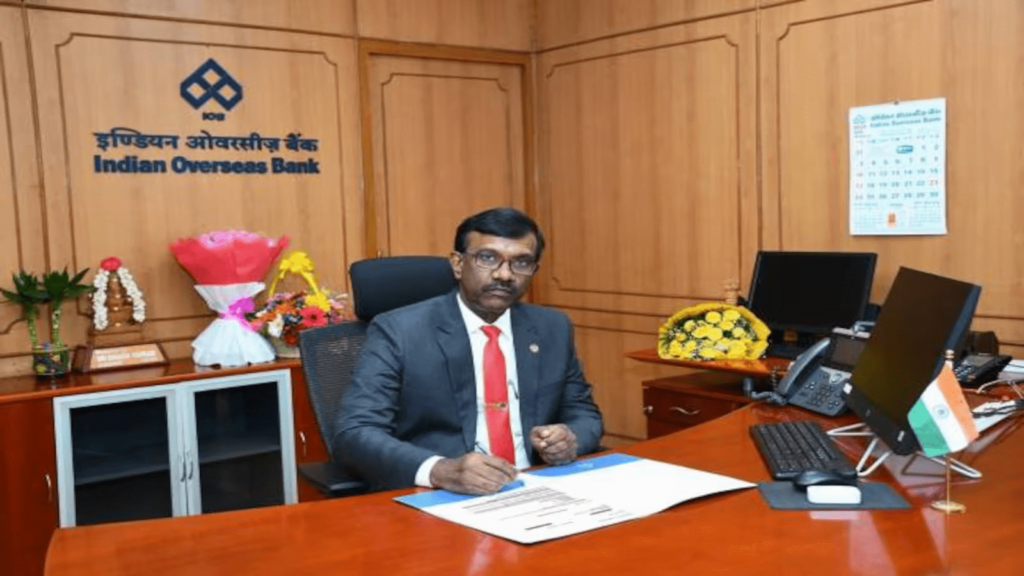
Key Points:
- Appointment: Dhanaraj T appointed as Executive Director of IOB for a three-year term.
- Effective Date: March 10, 2024.
- Previous Experience: Chief General Manager at Indian Bank.
- Career Start: Rural Development Officer in 1994.
- Qualifications: Agricultural Engineering Degree, CAlIB, Leadership Development Programme from IIM-Bangalore, Executive Programme in HR Analytics from IIM-Lucknow.
FIDC issues advisory to NBFCs amid successive regulatory actions
The Finance Industry Development Council (FIDC) has issued an advisory to NBFCs, urging them to comply with regulatory guidelines and implement measures to monitor the end use of funds. This advisory follows recent actions taken by the RBI and SEBI against NBFCs for non-compliance.
Key Points:
Regulatory Compliance: – NBFCs must adhere to all applicable laws and regulations, particularly KYC/AML norms. – Any loopholes in internal processes could compromise India’s security and economic interests.
Avoidance of Shortcuts: – NBFCs should not attempt to circumvent regulatory norms or take shortcuts. – Any observations or concerns raised by regulators must be prioritized and addressed promptly.
Risk Management and Monitoring: – NBFCs should establish appropriate risk management frameworks and review them periodically. – Processes for monitoring the end use of loans should be implemented.
Zero Risk Appetite: – NBFCs must have zero risk appetite on regulatory matters. – Sustainable growth and profitability should be prioritized over short-term measures.
Communication with Regulators: – NBFCs should keep regulators informed of remedial measures taken to address concerns.
Aditya Birla Capital announces merger with Aditya Birla Finance
Aditya Birla Capital (ABC) is merging with its subsidiary Aditya Birla Finance (ABF) to comply with RBI’s scale-based regulations for non-bank lenders. The merger will create a unified NBFC with greater financial strength and flexibility, enabling direct access to capital. ABC will become an operating NBFC, while ABF will be the first upper-layer NBFC to comply with the RBI’s mandatory listing requirement by September 2025.
Key Points
Merger Announcement – ABC announces merger with wholly-owned subsidiary ABF.
Purpose of Merger – To comply with RBI’s scale-based regulations for NBFCs.
Impact of Merger – ABC will convert from a holding company to an operating NBFC. – Creation of a unified large entity with enhanced financial strength and flexibility. – Direct access to capital for the merged entity.
Compliance with RBI Regulations – ABF will become the first upper-layer NBFC to comply with RBI’s mandatory listing requirement by September 2025.
Financial Strength – ABC has over ₹4.10 lakh crore of assets under management. – ABF has ₹98,600 crore of assets under management.
Leadership – Vishakha Mulye to become Managing Director and CEO of the merged entity. – Rakesh Singh to become Executive Director and CEO (NBFC) of the merged entity.
Benefits of Merger – Improved customer service. – Efficient capital utilization. – Enhanced operational efficiencies. – Potential for long-term value creation for stakeholders. – Rationalization and simplification of group structure. – Improved financial stability. – Enhanced value for stakeholders. – Ongoing compliance with RBI’s Scale Based Regulations.
What is Citizenship (Amendment) Act (CAA)? All you need to know.
The Centre has notified the rules for the implementation of the Citizenship (Amendment) Act (CAA) 2019, allowing persecuted non-Muslim migrants from Pakistan, Bangladesh, and Afghanistan to apply for Indian citizenship. The CAA aims to protect individuals who have faced religious persecution and entered India before December 31, 2014. The law excludes Muslims, leading to opposition and protests across the country. The application process will be conducted online, and no documents will be required from the applicants. The timing of the rule notification has raised concerns about political motives, with accusations of polarization ahead of the General Elections 2024.
Key Points:
- What is CAA?
- The CAA aims to protect individuals facing religious persecution and offers them a shield against illegal migration proceedings.
- Eligibility for citizenship requires entry into India on or before December 31, 2014.
- The amendment includes provisions for the cancellation of Overseas Citizen of India (OCI) registration for violations.
- Who does CAA leave out?
- The law is criticized for being discriminatory against Muslims, as it targets non-Muslim minorities from Islamic republics.
- Applications from other communities will be reviewed on a case-by-case basis.
- How can migrants apply for citizenship?
- The entire process will be conducted online, and a portal has been prepared by the Ministry of Home Affairs for applicants’ convenience.
- Applicants will not be required to submit any documents during the application process.
- Why has the Opposition been up in arms against it?
- Opposition parties have criticized the law as discriminatory and raised concerns about the timing of the rule notification.
- Accusations of political motives to polarize elections, especially in West Bengal and Assam, have been made.
- The timing of the notification
- The rules for the CAA should have been framed within six months of presidential assent, but the notification was delayed until December 2023.
- The timing of the notification, just before the upcoming Lok Sabha elections, has raised suspicions of political intent.
- How many people may seek citizenship under the new rules?
- While no specific figure has been provided, the Ministry of Home Affairs reported that 1,414 foreigners from non-Muslim minority communities were granted Indian citizenship from April 1, 2021, to December 31, 2021.
- The Citizenship Act of 1955 allows non-Muslim minorities from Pakistan, Bangladesh, and Afghanistan to apply for Indian citizenship in nine states.
TEPA: Norway to eliminate customs duties for almost 98 pc of imports from India.
Norway has announced the elimination of customs duties on nearly 98% of imports from India under the recently signed free trade agreement between India and the European Free Trade Association (EFTA). The pact aims to boost trade in various sectors and promote a rules-based trading system.
Key Points:
1. Customs Duty Elimination: – Norway will eliminate customs duties on almost 98% of imports from India. – This includes all important goods and services.
2. Trade Expansion: – The trade pact aims to expand trade across a range of areas, including pharmaceuticals, manufacturing, new technologies, and machinery.
3. Economic Significance: – Norway’s Prime Minister described the pact as one of the most important trade agreements Norway has ever entered. – Norwegian businesses will have significant opportunities in India’s growing economy.
4. Investment Commitment: – The EFTA countries have committed to promoting investments in India, with a goal of USD 100 billion and one million jobs.
5. Human Rights and Climate: – The pact includes a reference to human rights and international environmental conventions. – It also elevates climate ambitions and ensures worker’s and women’s rights.
6. Implementation and Support: – The pact will come into force after ratification by the signatories. – The EFTA bloc will establish an office in India to coordinate implementation. – Norwegian businesses have a lot to offer India in areas such as renewable energy, health technology, and green mobility.
Plan afoot to reclassify items for GST clarity in FMCG sector.
The Central Board of Indirect Taxes and Customs (CBIC) is compiling a list of products that frequently lead to litigation due to classification issues. The list will be presented to the Goods and Services Tax (GST) Council’s group of ministers on rate rationalization. The move aims to address confusion in tax liability, particularly in the fast-moving consumer goods (FMCG) sector.
Key Points:
Classification Issues: – The fitment committee is identifying products with minor composition changes that result in different tax slabs, leading to confusion. – There are approximately 25-30 goods and services with overlapping categorization.
FMCG Sector: – Many FMCG companies producing chips and namkeens using the extrusion method have received tax notices for paying 18% GST instead of 12%. – The industry has highlighted overlapping classification issues for items like namkeen, fruit-based drinks, and flavored milk.
Government Response: – Finance Minister Nirmala Sitharaman has instructed CBIC to prioritize resolving classification issues. – The fitment committee is working on a detailed list of products with grey areas that have attracted litigation.
Industry Representation: – The FMCG industry has requested clarity from the government, particularly after receiving DGGI notices. – They have made representations to the finance ministry to avoid unnecessary litigation and notices.
CCI’s powers to penalise on global turnover basis to deter anti-competitive ways.
The Competition Commission of India (CCI) has gained the authority to impose penalties of up to 10% of a company’s global turnover for competition law violations. This provision aims to deter egregious violations, encourage settlements, and facilitate faster corrective measures. The CCI has the discretion to determine whether to base penalties on global or relevant turnover, with a maximum penalty of 30% of relevant turnover or 10% of global turnover.
Key Points:
1. Penalty Calculation: – CCI can impose penalties based on a company’s global turnover or relevant turnover. – Maximum penalty is 10% of global turnover or 30% of relevant turnover.
2. Deterrent Effect: – Global turnover penalty provision aims to deter severe competition law violations.
3. Impact on Companies: – Companies with multi-products or multi-services may face higher penalties. – Big tech players are likely to be significantly impacted.
4. Settlement and Commitment Options: – Entities can offer commitments and settlements to avoid penalties. – Commitments and settlements do not require admission of guilt.
5. Faster Corrective Measures: – Global turnover penalty provision enables faster corrective actions to ensure fair competition.
6. CCI’s Discretion: – CCI has the discretion to determine the basis for penalty calculation. – CCI’s penalty guidelines consider proportionality and reasonableness.
7. Impact on Digital Markets: – The provision applies equally to all markets, including digital markets. – Alleged violations by big techs will be treated similarly to violations in other sectors.
EPFO issues SOPs for handling joint declaration application for higher pension under its Employees’ Pension Scheme
The Employees’ Provident Fund Organisation (EPFO) has established standard operating procedures (SOPs) for correcting employee profiles under the Employees’ Pension Scheme (EPS). These SOPs aim to verify member authenticity, reduce joint declaration rejections, and minimize fraud related to Universal Account Number (UAN) changes.
Key Points:
Acceptable Documents for Profile Correction:
- Aadhar card
- PAN card
- 10th or 12th marksheet
- Driving license
Timelines for Application Processing:
- Minor requests: 7 days
- Major requests: 15 days
- Escalated requests: 18 days
Number of Documents Required:
- Minor changes: Minimum 2 documents
- Major changes: Minimum 3 documents
Purpose of SOPs:
- Maintain accurate member profiles
- Reduce joint declaration rejections
- Minimize fraud related to UAN identity changes
Evolution of SOPs:
- Expected to evolve into an automated and regulated IT tool-enabled system
- Aim to streamline the process of receiving and correcting joint declarations
CBDT starts sending emails, SMSs for mismatch in tax profile in FY24.
The Income Tax Department is sending emails and SMSs to taxpayers whose tax payments for the current fiscal year do not align with their financial transactions. The department aims to inform these individuals and entities about significant financial transactions and encourage them to calculate and pay their advance tax liability accurately by March 15.
Key Points:
- E-Campaign for Taxpayers: The Income Tax Department is conducting an e-campaign to inform taxpayers about significant financial transactions and encourage accurate advance tax payment.
- Analysis of Financial Transactions: The department has analyzed tax payments and financial transactions for the current fiscal year and identified taxpayers whose payments are not commensurate with their transactions.
- Information Sources: The department receives information on financial transactions from various sources, including the Annual Information Statement (AIS) module.
- Viewing Significant Transactions: Taxpayers can view details of significant transactions by logging into their e-filing account and accessing the compliance portal.
- Registration for E-Filing: Taxpayers who are not registered on the e-filing website must register to view significant transactions.
Sovereign gold bonds help save $3.3 billion in India’s gold import bill
The Reserve Bank of India sold sovereign gold bonds (SGBs) worth 44.3 tonnes in FY24, the highest-ever response to the instrument since its introduction in November 2015. The value of SGBs in FY24 was $3.26 billion, expected to save 7-8% of the country’s annual gold import bill. Experts suggest implementing more measures to popularize SGBs to reduce gold import bills further. The influx of high-priced gold imports slowed due to increased global gold prices, leading to lower demand and higher discounts. SGBs have saved 5.5% of gold imports in quantity terms in FY24. Shekhar Bhandari of Kotak Mahindra Bank suggested focusing on converting demand for coins and bars into SGBs and allowing jewellers to promote SGBs.
Key Points:
- Highest-ever response to SGBs in FY24 with 44.3 tonnes sold.
- SGBs valued at $3.26 billion in FY24, expected to save 7-8% of annual gold import bill.
- Measures needed to popularize SGBs to reduce gold import bills further.
- Slowdown in high-priced gold imports due to increased global gold prices.
- SGBs saved 5.5% of gold imports in quantity terms in FY24.
- Suggestions to convert demand for coins and bars into SGBs and allow jewellers to promote SGBs.
Bangladesh, Sri Lanka, among countries looking to start rupee trade: Goyal
India is actively pursuing trade in rupees with various countries, including Bangladesh, Sri Lanka, and Gulf nations. This move aims to reduce transaction costs and promote direct currency exchange between nations. The Indian Rupee’s stability and the benefits of avoiding foreign exchange losses are driving this initiative.
Key Points:
1. Countries Keen on Rupee Trade: – Bangladesh, Sri Lanka, and Gulf nations are eager to initiate rupee trade with India. – Singapore is already partially involved in rupee trade.
2. Advantages of Rupee Trade: – Reduced transaction costs by eliminating currency conversion. – Avoidance of foreign exchange and transaction losses. – Reduced delays in money movement.
3. Growing Traction: – The UAE was the first country to accept rupee trade. – Many countries are expressing interest in direct currency transactions with India.
4. Stability of Indian Rupee: – The Indian Rupee’s stability against international currencies makes it attractive for trade.
5. Benefits for Countries with Dollar Shortages: – Rupee trade helps countries facing dollar shortages.
6. India’s Initiatives: – Rupee trade has been initiated with Nepal and Bhutan. – A mechanism is in place for rupee trade with Russia. – Sri Lanka has included the rupee in its designated foreign currencies.
7. RBI’s Role: – The Reserve Bank of India (RBI) allows authorized Indian banks to open special rupee Vostro accounts for partner countries. – These accounts facilitate the settlement of international trade in rupees.
8. Banks Involved: – HDFC Bank and UCO Bank have opened special Vostro accounts for rupee trade.

